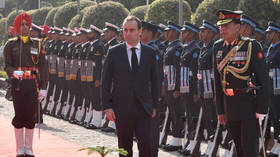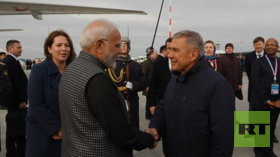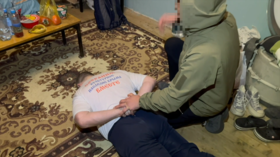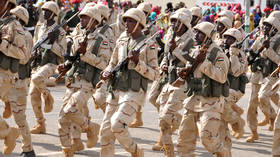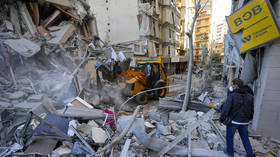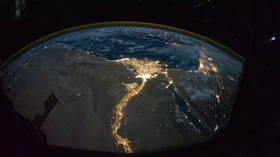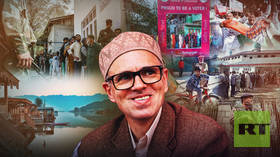Defense witness in genocide case against Bosnian-Serb Mladic found dead in Hague hotel
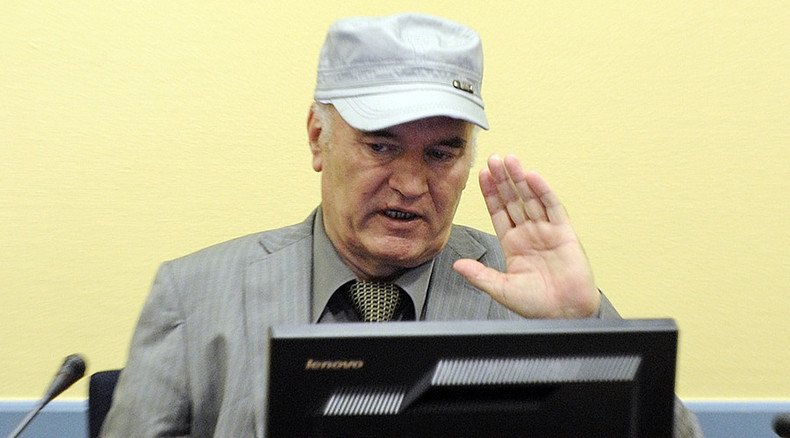
A defense witness at the genocide and war crimes tribunal against Bosnian Serb General Ratko Mladic has been found dead in a hotel room in The Hague. The Dutch police say nothing suspicious or criminal in his death ahead of giving testimony in the ICTY.
Dusan Dunjic, 65, was a forensic pathologist from Belgrade who was due to speak before the International Criminal Tribunal for the former Yugoslavia (ICTY), which accuses Mladic of orchestrating a massacre and attempted genocide during the Bosnian war of 1992-1995, especially in the case of the Bosnian-Muslim town of Srebrenica in 1995.
Dutch police immediately launched an investigation on Thursday, but despite the suspicious circumstances of the death, authorities say they have “no reason to suspect that a crime had been committed.” A police spokesman declined to give further details on Thursday.
PHOTO: Moment Serbian PM pelted with stones during #Srebrenica massacre memorial http://t.co/9Syi3DWT6mpic.twitter.com/FUT56b4Y0S
— RT (@RT_com) July 11, 2015The Bosnian-Serb General spent 14 years in hiding, as many Serbs, including his former lieutenants – as well as his family – aided him in evading capture. In his time as general, Mladic oversaw the war, including being at the helm of the siege of Sarajevo, which took three years, and the Srebrenica episode of 1995, which is what forms the core of the accusations of genocide.
Lingering divisions exist across the former Yugoslavia over the war and the assignation of blame over the human misery it wrought. The fighting claimed at least 135,000 lives. The Srebrenica massacre, in which up to 8,000 Bosnian Muslims were slaughtered by the forces of General Ratko Mladic, was a definitive episode of Serbian atrocities during the hostilities. A UN court defined it as genocide, but Serbia, while condemning the killings themselves, has never accepted the definition.
In July, Russia vetoed a UN Security Council resolution condemning the events of 1995 as genocide. Britain and a number of other Western countries blasted Moscow for this, but Russia says the historical evidence for the charge of genocide is flimsy.
READ MORE: How Srebrenica tragedy became excuse for atrocities around the world
The Serbs, meanwhile, believe that The Hague is one-sided as it highlights those crimes perpetrated by the Serbian side, and not by its neighbors, among them Croatia and Albania, who have enjoyed Western backing.
The notion that Srebrenica was a legal case of genocide remains heavily debated, as is a lot of the allegations raised by the ICTY and the facts and figures on the ground that seem to contradict them.
All Srebrenica massacre culprits must be punished – Moscow
http://t.co/jA8juAYmAJpic.twitter.com/ebnOzsO7Fg
— RT (@RT_com) July 11, 2015In the Yugoslav war, the town came under Bosnian Muslim control in 1992, with the surrounding areas controlled by the Bosnian Serbs. While Srebrenica enjoyed the protection of a Dutch UN battalion of 5,000, the population is said to have been carrying out continued assaults on the Serbs nearby.
In 1995, the Bosnian Serbs launched retaliatory attacks – something that served as ammunition for many in the West, and the ICTY, to accuse the Serbs of deliberately plotting to wipe out part of the Bosnian Muslim population, forcefully convert another to Orthodox Christianity. A lot of these views are said to have come from hearsay claims and not any hard evidence.


